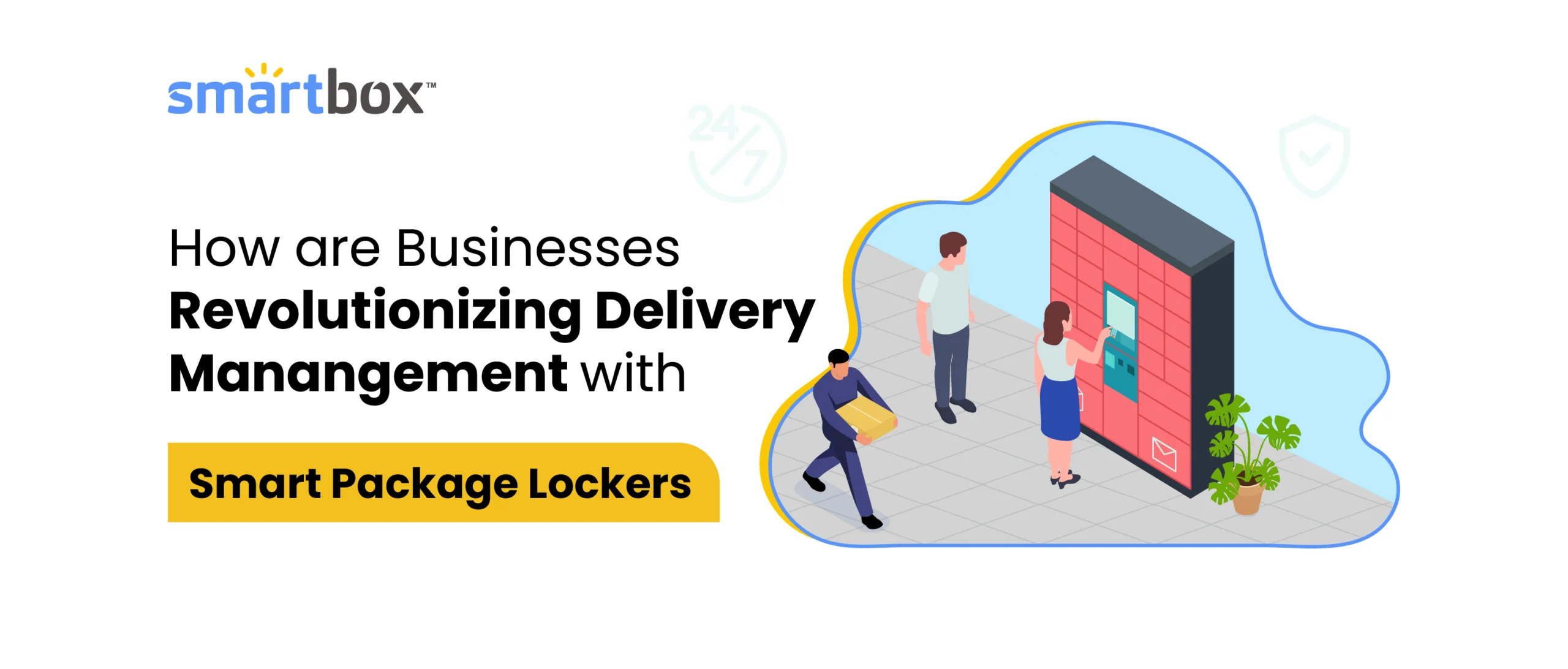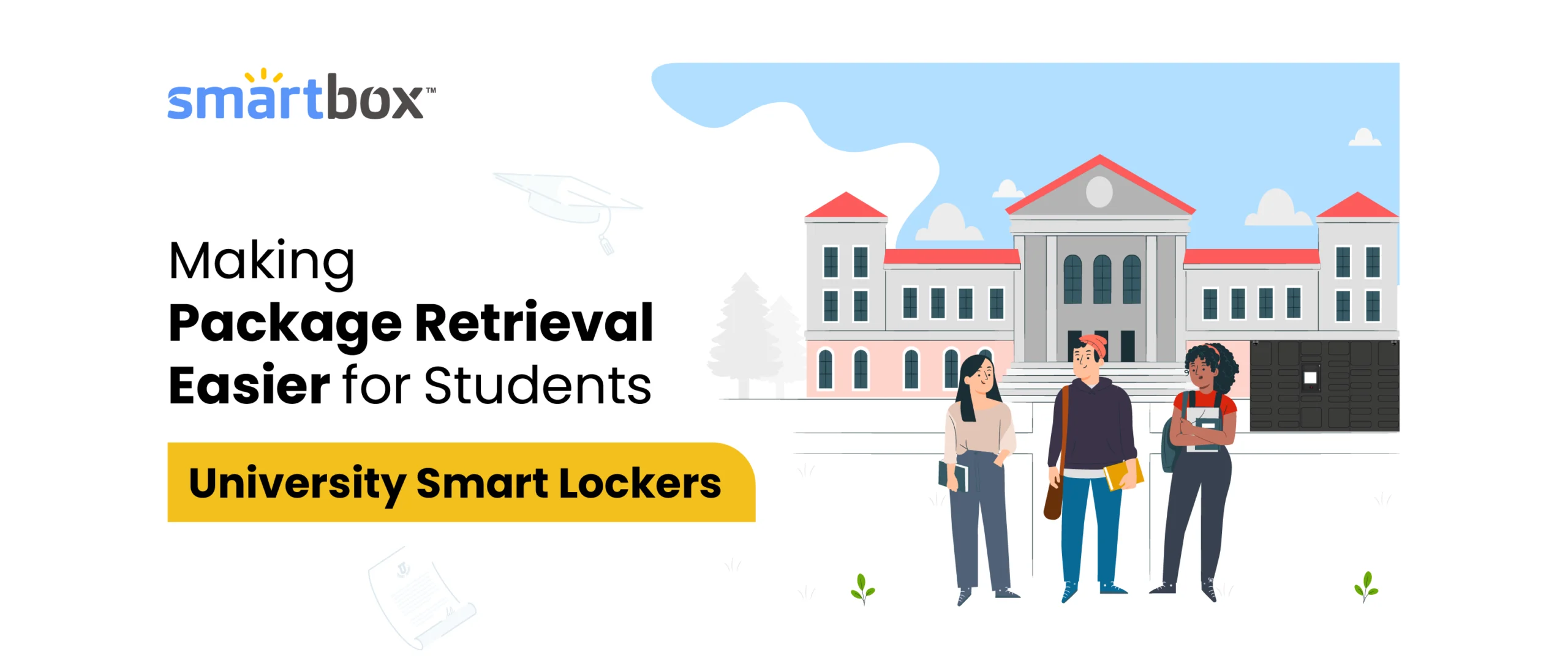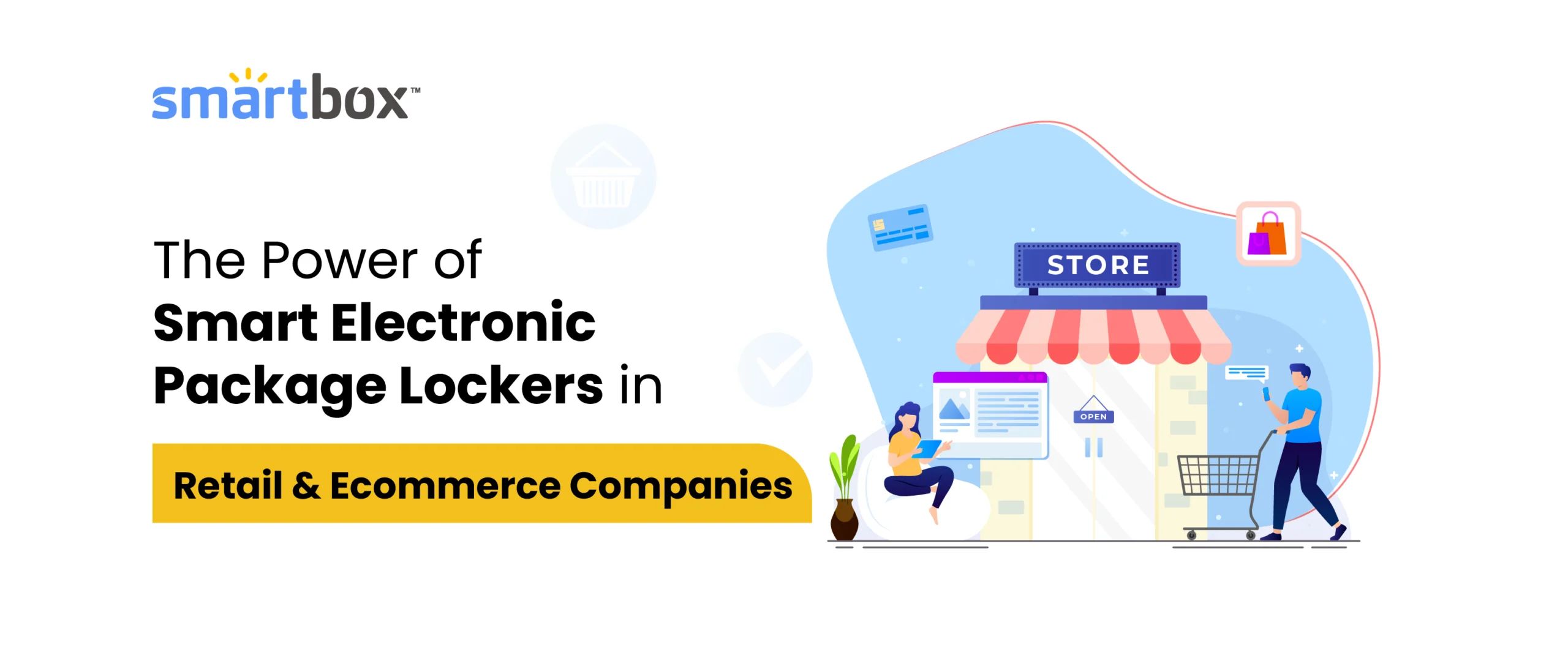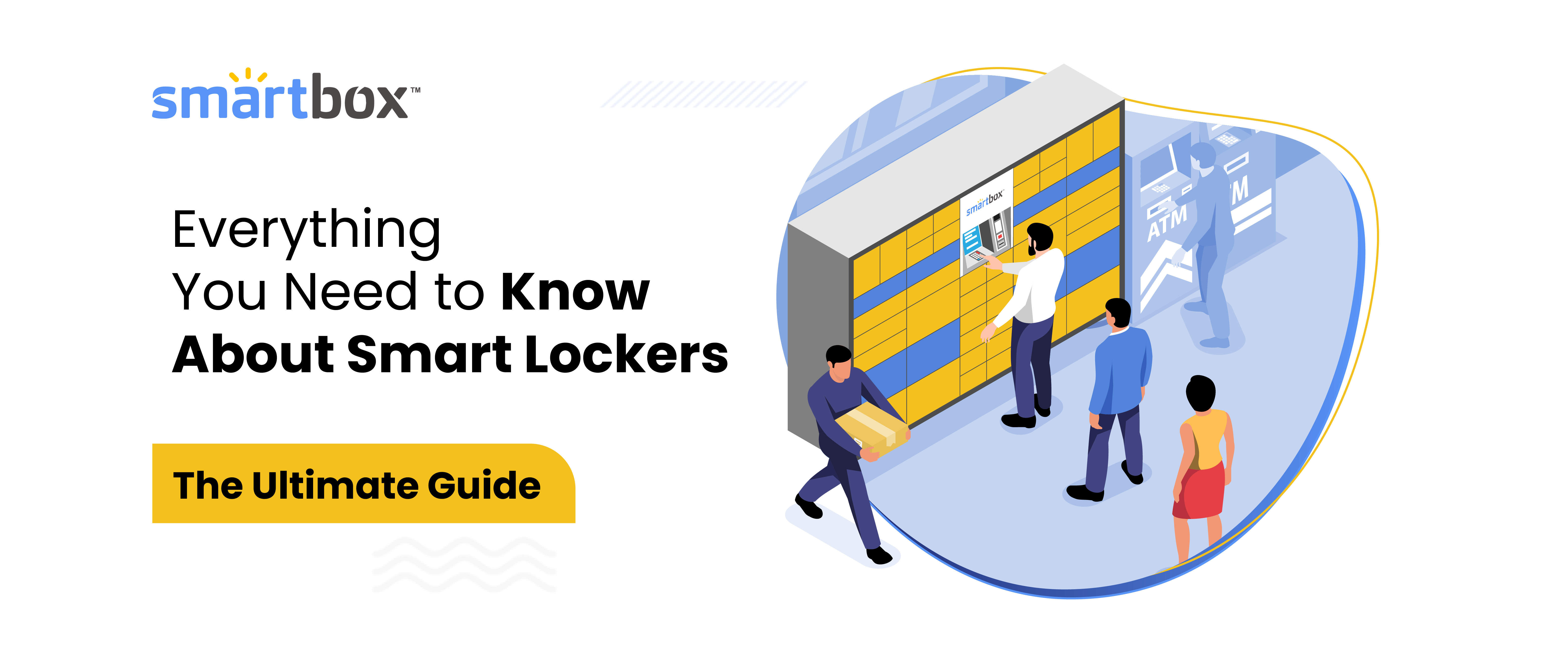The retail industry is undergoing a significant transformation in response to changing consumer behaviors and technological advancements. One emerging concept that holds immense potential is hybrid retailing, which combines the best of both physical and digital retail strategies. With the rise of e-commerce and evolving customer expectations, retailers need to adapt to stay competitive and drive increased sales. Hybrid retailing, leveraging technologies like retail locker systems, smart locker solutions, and contactless locker solutions, offers a promising path forward. Let’s explore the significance of hybrid retailing and how it can revolutionize the retail industry.
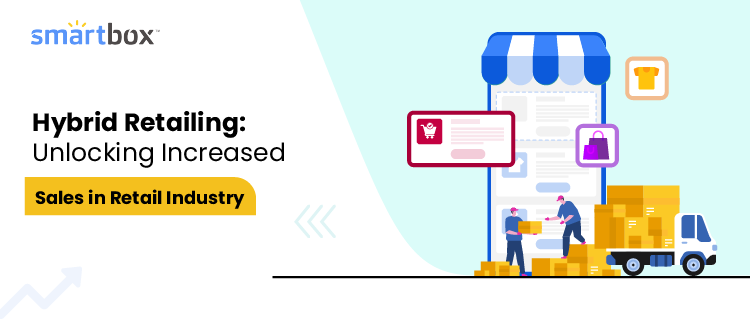
The Current State of Retail Industry
Traditional retail stores are grappling with various challenges, including declining foot traffic, increased competition from online retailers, and evolving consumer preferences. To thrive in this dynamic landscape, retailers must embrace innovative approaches that integrate the convenience of online shopping with the personalized experience of physical stores.
Additionally, these brick-and-mortar stores are continuously lacking the right technological innovations that not only improve their bottom lines but also improve their rate of retention. This places the retail stores at a crossroad where they can either pick the right tool for increased revenue or better customer experience.
Introduction to Hybrid Retailing
Hybrid retail, the blending of offline and online shopping, represents a powerful fusion of traditional brick-and-mortar retail and e-commerce. This innovative model is strategically designed to provide customers with a comprehensive and personalized shopping experience, offering them unparalleled convenience and flexibility.
Despite the growing popularity of online shopping, consumers still crave the tactile experience of visiting physical stores. Hybrid retail fulfills this need by presenting customers with a range of options. They can seamlessly transition from browsing products online to picking them up in-store, or vice versa. This fluidity between the offline and online realms caters to the diverse preferences and lifestyles of modern shoppers.
The rise of hybrid retail is not only a response from brick-and-mortar retailers striving to keep pace with rapidly advancing technology, but it also appeals to e-commerce businesses seeking to expand their reach and venture into the realm of in-store experiences.
In the realm of modern retail, hybrid retailing has emerged as a powerful strategy that blends the best of brick-and-mortar establishments with digital capabilities, ensuring a seamless shopping experience for customers.
How to Implement Hybrid Retailing?
Through the utilization of technologies like smart locker solutions, electronic lockers for retail, and retail locker management systems, retailers can unlock a myriad of benefits, including contactless pickup options, efficient parcel management, and unmatched convenience.
With secure storage solutions like retail locker systems, retailers bridge the gap between the online and offline realms, providing customers with a unique and personalized retail experience. By implementing electronic lockers for retail, retailers enable customers to conveniently retrieve their orders or make in-store purchases at their preferred location. These self-service lockers, powered by digital locker technology, offer secure and contactless transactions, ensuring the safety of both customers and their valuable purchases.
The Power of Smart Locker Solutions in Retail Sector
The true significance of hybrid retailing lies in its ability to boost sales and revenue. By embracing retail locker systems, retailers can tap into the vast potential of the booming e-commerce market while harnessing the advantages of physical stores. E-commerce locker solutions, integrated within the retail ecosystem, enable click-and-collect services that seamlessly combine online ordering with in-person pickup. This omnichannel approach enhances the overall shopping experience, catering to the evolving preferences of customers and fostering strong brand loyalty.
Intelligent locker technology plays a pivotal role in streamlining order fulfillment processes and enhancing operational efficiency. With retail locker management systems, retailers gain precise control over inventory, allowing optimized space utilization and accurate tracking of items. This results in efficient parcel management and timely order fulfillment, which ultimately contributes to customer satisfaction and repeat business.
Reasons for the Shift in Retail Industry
The retail industry has experienced a significant shift driven by a multitude of factors. This transformation has prompted retailers to reassess their strategies and adapt to the changing landscape. Some of the biggest reasons behind this shift in the retail industry are:
1. Evolving Consumer Expectations
The retail landscape is experiencing a significant transformation as consumer expectations continue to evolve. Advancements in technology and shifting lifestyle preferences have played a crucial role in shaping these changes. Today, consumers prioritize convenience, personalized experiences, and seamless interactions across all touchpoints. They expect retailers to have a deep understanding of their needs, offer an extensive product range, and deliver fast and reliable services. Adapting to these evolving expectations is vital for retailers to effectively meet consumer demands.
2. The Impact of Digitalization
The rise of digitalization has revolutionized the way consumers shop. The linear path to purchase has been replaced by an omnichannel approach, where consumers seamlessly integrate online and offline channels. Regardless of the platform they choose (whether a physical store, website, or mobile app) consumers expect a cohesive experience. They want the flexibility to research products online, make purchases in-store, and have the convenience of home delivery or in-store pickup. Embracing this shift towards omnichannel experiences is crucial for retailers to cater to customer preferences and provide a seamless journey.
3. Technological Innovations
The retail industry has been revolutionized by a wave of technological innovations, shaping the way businesses operate and consumers shop. These advancements have opened up new possibilities and transformed various aspects of the retail experience. Implementation of technological innovations like artificial intelligence (AI) and machine learning (ML) technologies, enable retailers to gather and analyze vast amounts of customer data, allowing them to gain valuable insights into shopping behaviors, preferences, and trends. This data-driven approach empowers retailers to deliver personalized recommendations, targeted marketing campaigns, and tailored shopping experiences that resonate with individual customers.
Key Advantages of Hybrid Retailing
Hybrid retailing brings multiple advantages to retailers, empowering them to meet the evolving needs of customers and stay ahead in a competitive market. Some of the key advantages of hybrid retailing are:
1. Enhanced Customer Engagement
By embracing hybrid retailing, retailers can create meaningful connections with customers across multiple channels. Through personalized recommendations and tailored promotions, retailers can cater to individual preferences, delivering a truly immersive and engaging shopping experience. This heightened customer engagement leads to increased customer satisfaction and brand loyalty.
2. Expanded Market Reach
Hybrid retailing enables retailers to tap into a wider customer base by leveraging both online and offline channels. With an omnichannel presence, retailers can capture the attention of customers who prefer the convenience of online shopping as well as those who value the tactile experience of brick-and-mortar stores. This expanded market reach opens new opportunities for growth and revenue generation.
3. Seamless Shopping Experience
By integrating offline and online channels, hybrid retailing creates a seamless shopping experience for customers. Whether customers choose to browse products online, make purchases in-store, or opt for click-and-collect services, they can enjoy a consistent and convenient shopping journey. This cohesion between different channels fosters customer satisfaction and encourages repeat business.
4. Effective Inventory Management
Hybrid retailing allows retailers to optimize inventory management using smart inventory systems and IoT devices. By leveraging real-time data and analytics, retailers can gain valuable insights into consumer demand, track inventory levels, and make data-driven decisions. This efficient inventory management minimizes stockouts, reduces excess inventory, and enhances overall operational efficiency.
5. Data-Driven Insights
Hybrid retailing provides retailers with access to valuable customer data, which can be leveraged to gain insights into consumer behavior, preferences, and buying patterns. By analyzing this data, retailers can identify trends, personalize marketing strategies, and refine their product offerings. These data-driven insights enable retailers to make informed decisions, tailor their offerings, and optimize their marketing efforts.
6. Futureproofing and Innovation
Hybrid retailing positions retailers for future success by embracing technology and innovation. Retailers who adapt to changing market dynamics and consumer preferences are better equipped to navigate industry disruptions. By integrating digital solutions, such as retail locker systems, e-commerce platforms, mobile apps, and contactless payment systems, retailers can future proof their business and remain relevant in a rapidly evolving retail landscape.
Conclusion
The future of the retail industry lies in the adoption of hybrid retailing, which combines the best of both online and offline shopping experiences. This approach allows retailers to leverage technological innovations to create seamless, personalized, and immersive experiences for customers. Through the integration of retail locker systems, smart locker solutions, and automated lockers, retailers can offer convenient and contactless pickup and delivery options, enhancing customer satisfaction and loyalty.
The time to embrace the future of retail is now.
If you are seeking to transform into hybrid retailing with new, innovative and effective smart lockers, contact us today.
Don't forget to share this post!

